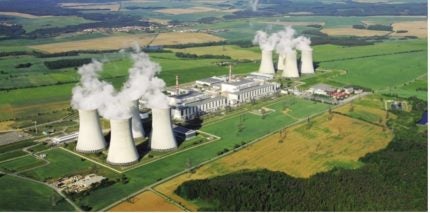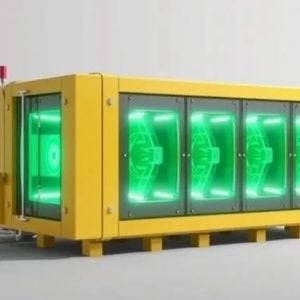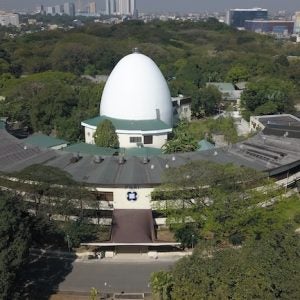
Both Westinghouse and EDF are now challenging the Czech Republic’s decision to select Korea Hydro & Nuclear Power (KHNP) to supply new reactors. Westinghouse Electric Company is already taking legal action against KHNP in a US district court for what it describes as a violation of its intellectual property rights.
In July, a South Korean consortium led by the state-run KHNP was selected as the preferred bidder for the construction of up to four NPP units in the Czech Republic. The other contender was Électricité de France (EDF). US-based Westinghouse Electric had been excluded from the tender in January, because it “did not meet the necessary conditions”.
The project involves the construction of up to four large nuclear reactors at the Dukovany and Temelín NPP sites, with two reactors (units 5&6) confirmed for Dukovany. The total project cost is estimated by the Czech Republic to be approximately CZK200bn ($8.85bn) per unit. The Czech Republic and KHNP plan to finalise the contract by March 2025, aiming for the completion of the first nuclear reactor by 2036.
However, the Czech Office for the Protection of Competition (UOHS – Úřad pro Ochranu Hospodářské Soutěže) has now received submissions from both Westinghouse and EDF challenging the procedure of the contracting authority, Elektrárna Dukovany II (part of power company ČEZ), in the tender.
EDF requested that UOHS should to overturn the bidding decision made by ČEZ, while Westinghouse raised issues related to national security exception clauses and its elimination from the bid. “The complaint by EDF is primarily directed against the decision on the selection of the preferred supplier, and, therefore, requests the Office to determine that there has been a violation of the tender conditions and to cancel the acts of the contracting authority relating to the evaluation of the tenders.” UOHS said.
“Westinghouse challenges the contracting authority’s procedure outside the framework of the law on the basis of the so-called security exception, highlighting also the violation of the fundamental principles of public procurement and the errors in the selection of the preferred supplier. According to the complainant Westinghouse, the Office should cancel the contracting authority’s decision to select the preferred supplier KHNP and the supplier EDF and of not selecting the supplier Westinghouse for the next stage of the tender procedure, as well as the decision to extend the scope of the contract from January 2024 and all subsequent actions of the contracting authority.”
UOHS added: “In both cases, administrative proceedings have been initiated, the length of which cannot be predicted at present, given their substantive and procedural complexity. Until the first instance decisions are issued, the Office will not provide any further information on the progress of these administrative proceedings.”
ČEZ had previously asserted that the bid included national security exception clauses, which would preclude objections to UOHS. However, Westinghouse has consistently claimed that South Korea’s APR100 and APR1400 reactor designs utilize its own 2nd generation System80 technology. Although KHNP insists that it has developed an independent Korean model since then, this matter is now facing litigation in the US.
Business Korea says the objections from Westinghouse and EDF “underscore the high stakes and competitive nature of the international nuclear power market”. It adds that the litigation by Westinghouse “highlight the complexities of technology transfer agreements in the nuclear industry”. Additionally, “the national security exception clauses invoked by ČEZ add another layer of complexity to the dispute”.
Korea’s Hankyoreh reported that efforts are being made to reach a compromise with Westinghouse before Korean President Yoon Suk-yeol’s planned visit to the Czech Republic.”While there is currently a disagreement between Korea Electric Power Corporation, Korea Hydro & Nuclear Power (KHNP) and Westinghouse in regard to intellectual property rights, there is also the option of cooperating on equipment supply as in the case of Barakah in the UAE,” Korea’s Ministry of Trade, Industry & Energy said in response to a query from legislator Shin Yeong-dae.
The Korean government says that one way to resolve the dispute is for KHNP to buy equipment from Westinghouse. When KHNP (won a bid to build nuclear reactors at the Barakah plant in the UAE in 2009, it reached an agreement with Westinghouse to drop objections about intellectual property right violations in exchange for sourcing key parts, including reactor coolant pumps and turbines, from the American company, Hankyoreh said. “Sources in the nuclear power industry estimate that around $2bn of the $18.6bn budget of the Barakah project went to Westinghouse to pay for parts and materials.”
KNHP and the Korean government have said they will negotiate to eliminate the problem. The Trade Ministry released an additional statement noting: “That was a generic statement in which we said the two companies could reach a mutually beneficial outcome through cooperation in various areas, rather than through a legal conflict. Nothing has been decided about supplying equipment for the Czech nuclear reactors; that’s something to be decided after KNHP reaches a final contract with the Czech contractor.”






